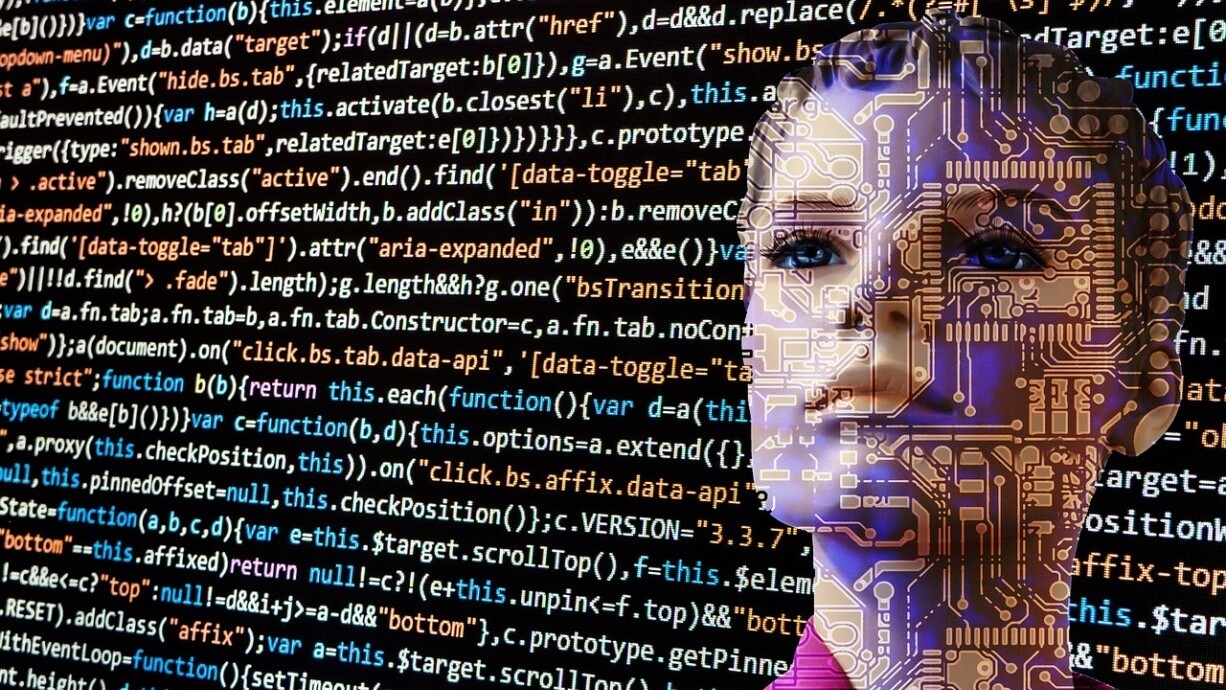
Technology is shaping just about everything that happens around us. From interacting with each other to making decisions, from learning to running day-to-day operations, everything is influenced by rapidly evolving and growth in accessibility of technology. And the most glorious example of this phenomena, can be witnessed in the arena of Artificial Intelligence or AI.
The raging debate over the possibility of AI upending the workforce and eventually usurping jobs, especially for the ones that are easy to automate, is an old tale. While a lot of these concerns may just be a tad bit over-the-top, there’s no denying the fact that at some point in time intelligent machines are going to play an important role in the way organizations function. There are clear benefits to leveraging AI for business growth and the sooner organizations realize this, the better they will be prepared to deal with it.
So, instead of fearing the unknown, enterprises must realize that when applied purposefully, Artificial Intelligence can help unlock human potential for the better and drive people to do more. Most organizations today especially those contemplating AI adoption are looking to answer some important questions: “What is the role of artificial intelligence in people management? How can managers evolve to thrive in the age of Artificial Intelligence?”
As an attempt to answer these questions researchers at Accenture, the global management consulting and professional services company, surveyed a group of 1,770 businesses spanning 14 countries as well as 37 top executives entrusted with the task of digital transformation at their respective organizations. What they found was that the job of managers at any level could be done more efficiently by implementing AI within their organization’s operations.
Here’s how:
1) Artificial Intelligence can enhance people skills
With AI it’s easy to eliminate a bulk of manual analytics and planning tasks required to design people programs and come up with solid recommendations based on actual data, as opposed to mere gut feeling. AI is expected to help managers and human resource personnel teams make data-driven decisions that are better as they are error-free, unbiased and more impactful.
2) AI can efficiently manage workflows
Most managers will probably agree that as much as 54% of their time is spent (read: wasted) while attending to administrative tasks such as working out schedules and preparing an endless stream of reports. Enter the world of AI where most of these routine administrative tasks can be automated freeing up managers to attend to other important functions.

3) AI can help managers focus more on strategic innovation
Innovations in the world of AI potentially means that most number crunching tasks can be left to the machines, while the managers can focus their energy on strategizing and innovation. As per the aforementioned survey, currently managers are spending just about 10% of their time on strategizing and innovation, while they are able to devote only a little over 7% towards engaging with employees and other stakeholders. So, when translated to a regular eight-hour workday, managers are spending less than an hour thinking about the future of the company and coming up with strategies for growth and profits. With the help of AI, a substantial amount of a manager’s time could be freed up allowing them more time for the “big decisions”.
4) Treat AI as a “colleague” and not as a competition
Managers who look at AI as a colleague as opposed to a competing entity, know that they need not be “racing against a machine”. While AI will (hopefully) never be able to replace human judgement, it can still assist managers with data-driven decision-making as well as manual activities related to search and discovery. Most managers who were surveyed agreed to trust the advice offered by AI-backed systems when it came to decision-making.
An example of a company that implements AI is Kensho Technologies, a provider of Investment related data analytics and machine intelligence. Their AI tool allows investment managers to send a query in common English, like “Which industries witnessed improved performance in the months of November through January of 2016?” and get answers instantly. Imagine the impact such a technology could have on businesses and management teams in determining risk tolerance consequent to a business decision in any given situation.
5) AI can help with social skills and networking
This may sound like stuff from a Sci-Fi movie but this is already happening. MIT CSAIL, using a Samsung Simband, has successfully demonstrated the potentiality of wearable AI capable of analysing audio and monitoring blood pressure, heart rates, skin temperature and movements, thereby, allowing the user to better understand the tone of a conversation and help make better social interactions.
Managers are no aliens to the importance of social skills in networking, coaching, and collaborating with others. With the help of AI they are able to bring out diverse perspectives, insights, and experiences as they try to tap into the knowledge and judgment of partners, customers, and communities.
Conclusion
In conclusion, it’s fair to say that managers do not really have to live in panic as organizations start veering towards AI-based systems for the workplace. The future is ready and AI is definitely going to be a part of it. So, instead of viewing AI as a replacement for human intervention, managers must work towards forming a collaboration with machines, letting them manage their tasks in smarter and more efficient ways.
Get the TNW newsletter
Get the most important tech news in your inbox each week.





